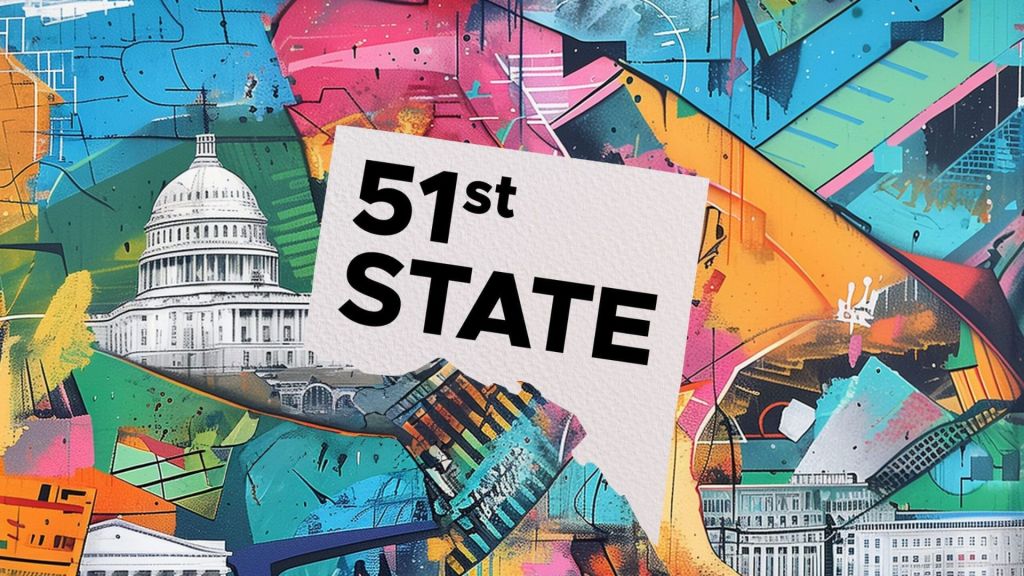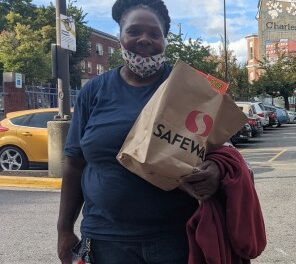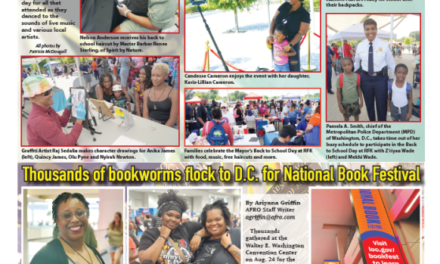By Amber D. Dodd
Special to the AFRO
adodd@afro.com
On Father’s Day, recognized this year on June 16, Hannah Rosenzweig, Jamal Holtz and Diane Robertson premiered their film “51st State.” The documentary was shown at the second annual D.C./DOX Film Festival, a program that highlights projects capturing and cultivating life in the nation’s capital.

Credit: Photo courtesy of DCDoxFest.com
Rosenzweig created the film while Robertson served as the executive producer. The documentary follows statehood activists and D.C. natives Holtz and Demi Stratmon. Their work is housed under 51 for 51, an organization committed to D.C.’s statehood.
“We have to see D.C. statehood as a fight for racial justice,” Holtz told the AFRO. “There are people who are advocating around racial justice across the country, but we have to see D.C. statehood as an intersection to those issues.”
In 1787, the founding fathers decided that D.C. cannot have congressional representation since the federal government is located there.
This set the precedence for the lack of political power and representation for D.C.’s 700,000 residents today. Though D.C. residents are America’s highest taxpayers, there is no Senate or State representation.
Historians argue that D.C.’s statehood is an issue of voter suppression and disfranchisement as Wyoming and Vermont, two states with lower populations than D.C., possess full political representation in the House and Senate.
“People don’t think about this as a voting rights issue, but it very much is,” Stasha Rhodes, strategist and Democracy Reform Leader and former director of 51 for 51, said. “Our democracy, specifically in the Senate, gives more power to smaller, Whiter, redder states.”
United States House of Representative Eleanor Holmes Norton, a staple in the nation’s capital, serves as Congress’ only representation for the district.
“We don’t have any senators, the District of Columbia only has me on the House floor,” said Norton, who makes an appearance in the documentary. “The fight is really about becoming equal to other Americans.”
The fight for D.C. statehood is done through three different legislative acts; For the People Act (H.R. 1), The Washington D.C. Admissions Act (S.51) and the John R. Lewis Voting Rights Advancement Act (H.R.4.). The bills did not pass during the 2021 legislative session.
The bills garnered the support of notable politicians such as the ACLU, U.S. Senator Cory Booker (D-NJ) and U.S. President Joe Biden.
“We have to push those individuals, especially those Democrats senators who have not yet spoken on D.C. statehood,” Stratmore said. “D.C. is a Black and Brown place, it’s easy to disenfranchise a group of people that have been disenfranchised for the entire history of this country.”
Holtz and the 51 for 51 team vie for statehood in other avenues such as the Young Democrats of D.C.. Holtz becomes president of the respective organization, inviting D.C. Mayor Muriel Bowser.
“We are always going to fight for D.C. statehood,” Bowser said, to the Young Democrats of D.C. “I am counting on you to take us to the next level.”
Robertson, Rosenzweig and Holtz participated in a panel after the documentary’s premiere. Fawn Johnson, news director of the Bloomberg Industry Group, moderated the panel.
“As a historian and democracy advocate, I just saw this as the perfect story to tell,” Robertson said.
“D.C. is not going to become a state until the other 50 states decide that it should be a state, and that requires education, so this was the perfect vehicle to tell a story that would go beyond its intended audience and be used in places where people aren’t thinking about it.”
The trio agreed that the film serves as a starting point for nationwide support of D.C. statehood. “One of the things Jamal and I talked about was the importance of this story…of the need for statehood outside of the city,” Rosenzweig said. “That was a reason for somebody outside of the district like myself to make the film and hopefully bring it to new audiences. ”
Visuals of the everyday Black Washingtonians enjoying their lives, even through their struggle for political representation, is a potential connection point for D.C.’s goals for statehood.
“Culture allows for connection,” Holtz said on authentic D.C. representation. “I go back to using the word ‘humanity.’ People get to connect with the human themes rather than the policy.”
Longtime statehood activist Henry Hughes said statehood efforts are intertwined with the roots of Black activism.
“This cycle is about self determination,” Hughes said.
If D.C. earns its statehood, it would be the first majority Black state in American history. This, Holtz says, could garner the support of Black communities who could empower their respective senators to support D.C. as the 51st state.
“There are Black people in South Carolina, in Texas, all over the country that have a connection to the Black culture displayed at an all-time high in Washington D.C.,” Holtz told the AFRO. “I think it’s important to showcase what D.C. is for other people to at least feel an immediate connection and familiarity…Black people across the country should be outraged that D.C. is not a state.”
The post D.C. activists vouch for statehood as ‘51st State’ documentary premieres at D.C./DOX Film Festival appeared first on AFRO American Newspapers.










